:format(webp))
Strong women, strong future - New paths in the Himalayas
The future belongs to women! The joint project with Gebeco therefore aims to empower a group of women in the region around Chamoli in northern India by involving them in the tourism sector. For example, they are trained in the production of local products that they can sell to visitors and locals, enabling them to generate their own income and be independent.
:quality(80):format(webp))
Project objectives
Supporting Indian women in a rural region to generate their own income and thus be independent.
Creating a meeting place where women can exchange ideas and participate in the workshops offered.
Promoting women through networking with the tourism sector in order to open up new opportunities for them to participate in this area.
Women in India
Domestic violence: One in ten married women in India experience domestic violence.
Gaps in education due to early workload: Many girls are only able to attend school irregularly and often leave school after the 4th grade to help out in the household or in the fields.
Disadvantage: Girls are prepared for their role as wives and mothers at an early age. Particularly in poorer classes, priority is given to the education of sons, and the drop-out rate among girls is correspondingly high.
Sources:
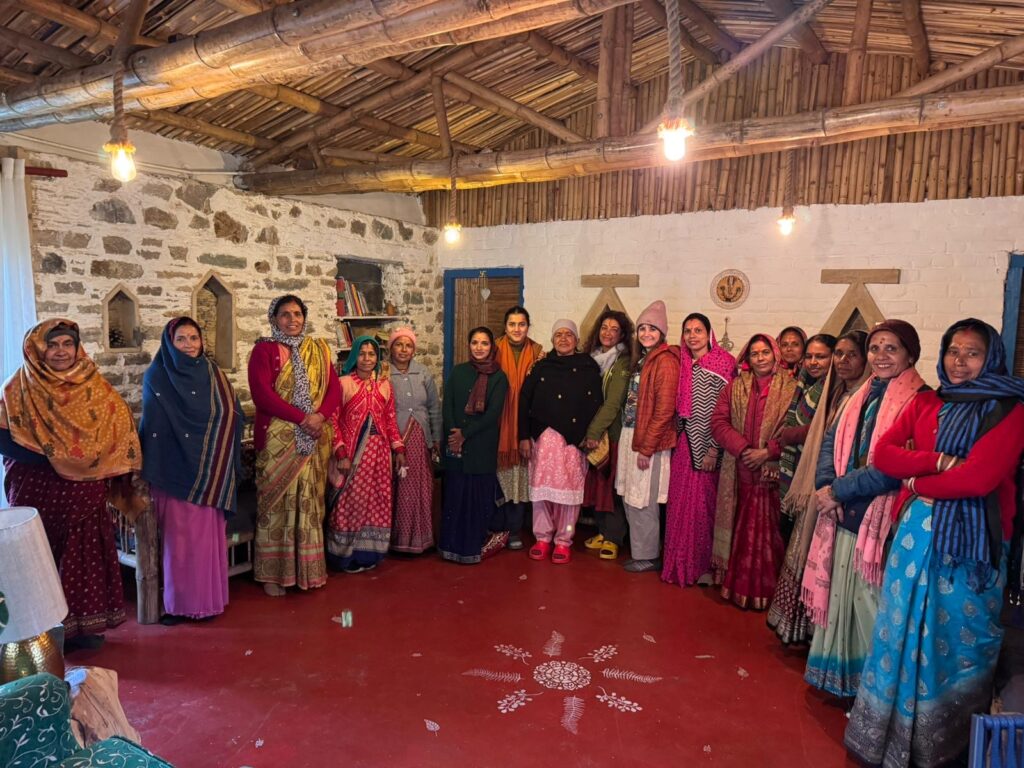
Women in rural areas have hardly any rights
The region around Chamoli, Uttrakhand, is located in northern India, in the Himalayas at an altitude of 1.515 meters. The people in the surrounding villages live from growing grain, fruit and vegetables (e.g. millet, red rice, lemons, kiwi), but have no opportunity to sell their produce or earn an additional income.
Due to the lack of economic prospects and the difficult living conditions, many young men in the region leave their homes to find work or a better life outside Chamoli in the larger cities.
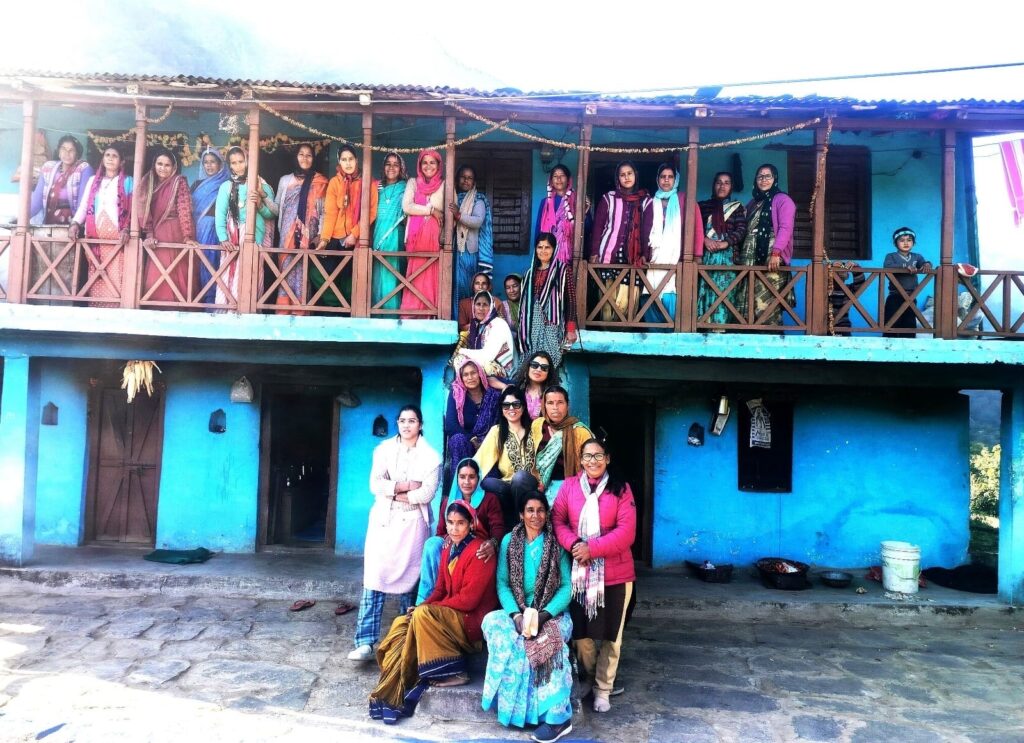
However, the women and children are forced to remain in the region under the control of the men and have to work in the fields, look after the house and family as well as the livestock, but do not earn any income of their own.
The situation of women in this rural region is challenging. They have few rights, often suffer domestic violence and are widowed at a young age but are not allowed to remarry.
The women in the region lack a safe place where they can come together, talk about their future and feel free.
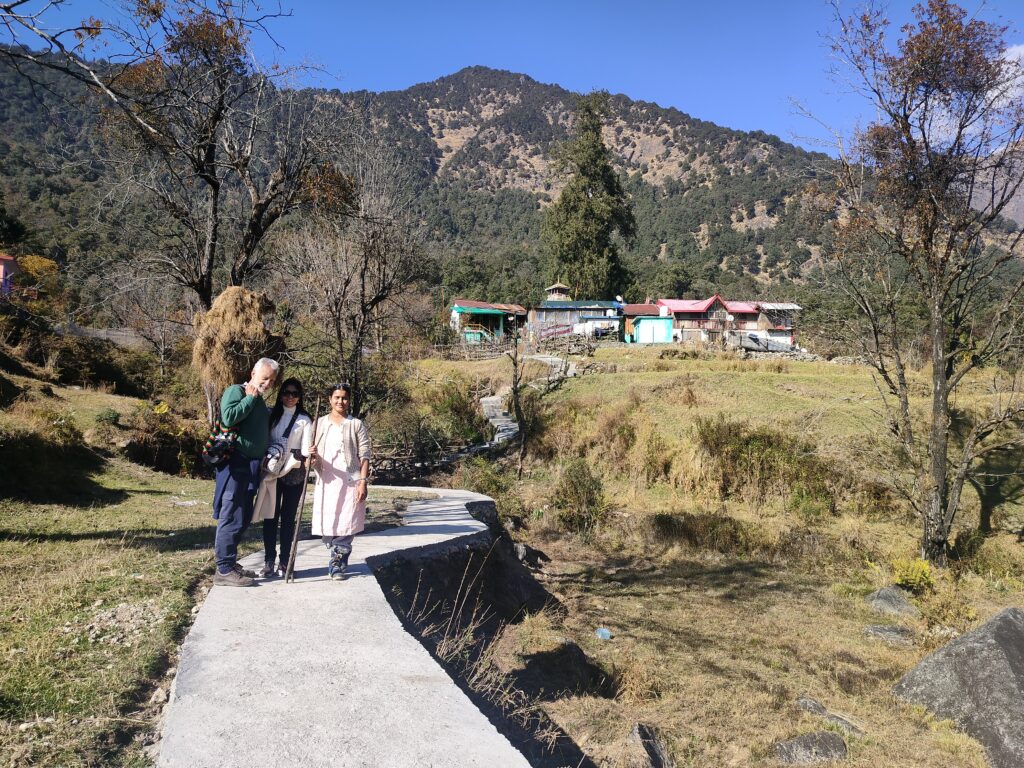
Our common goal: empowering women
The joint project aims to use tourism as a means of protecting local women and preserving traditions and cultural heritage. The aim is to create a mutually beneficial relationship in which the income from tourism directly benefits the local people and nature.
The main objective of this project is to empower the women in the villages of Chamoli through tourism and to help them find work and have a better life.
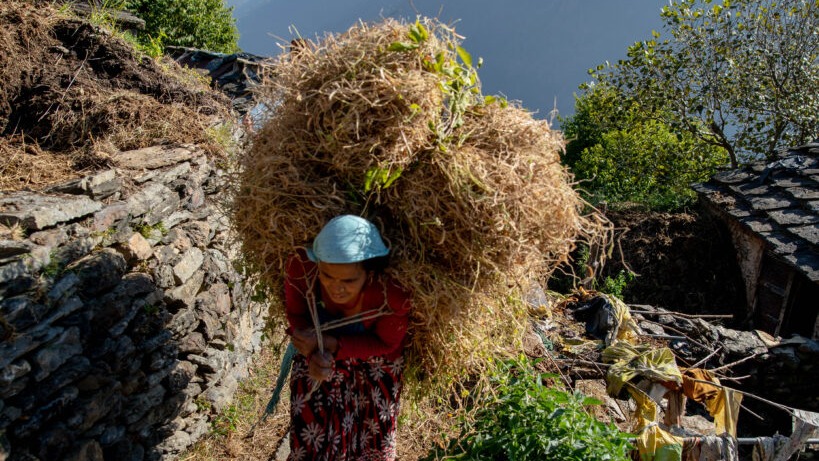
How do we want to achieve this?
The first step is to build a community development center that will serve as a safe place for local women to meet, learn, make their products and hold workshops for visitors. It will be a center for learning English, traditional practices, handicrafts and permaculture agriculture, promoting skills development and preserving cultural heritage.
In addition, educational workshops will be offered in which the women will learn, for example, the English language in order to interact with visitors to the region and sell their products.
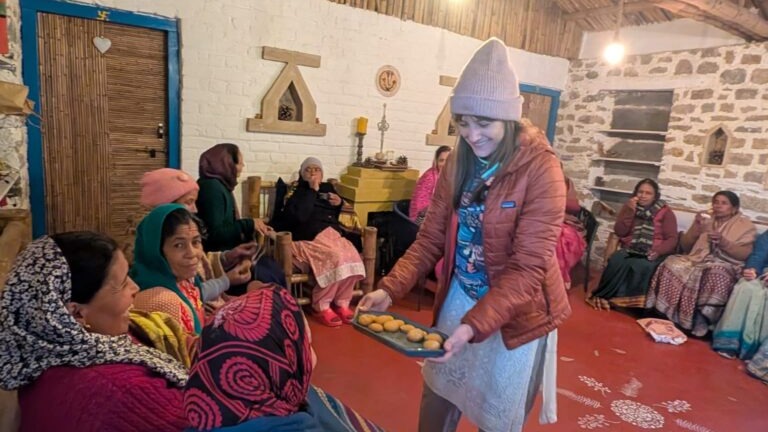
At the same time, the women learn how to make various products such as soap or spice blends using local raw materials and market them on the national and international travel market as part of product workshops run by local and regional trainers and volunteers. This involves establishing relationships with existing and newly created networks of local women's cooperatives and initiatives.
The focus of the product workshops is determined together with the local women. They can decide which products are produced first.
Our long-term vision is to create a product line with different products that contribute to regional value creation and to securing the women's standard of living.
Activities
The following activities are planned
Construction of a center as a training and meeting place for the women from the surrounding villages
Implementation of at least 2 educational workshops, such as an English course
Implementation of at least 2 product workshops, the topics of which are decided jointly by the women

:format(webp))